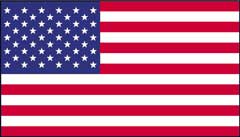State Contractor Provisions
The Connecticut General Statutes prohibit state contractors, prospective state contractors, principals of state contractors and prospective state contractors (including spouses and dependent children over the age of eighteen) and political committees established or controlled by such state contractors, prospective state contractors or their principals from contributing to those candidates running for an office in the branch with which the contractor has or is seeking a contract, political committees authorized to give to such candidates, and party committees (which includes town committees). In addition, state contractors, prospective state contractors, and their principals are prohibited from knowingly soliciting contributions from the state contractor's employees or from the state contractor’s subcontractors and their principals for candidates in the branch with which the contractor has or is seeking a contract, political committees authorized to give to such candidates, and party committees.
State agencies and quasi-public agencies report to the SEEC the names of their state contractors and prospective state contractors which meet the relevant financial threshold: having or seeking to obtain a state contract valued at $50,000 or a series of state contracts having a value of $100,000 or more in a calendar year. The SEEC periodically publishes the names of the state contractors and prospective state contractors on its website, as reported by the state agencies. These lists are not exhaustive.
Lobbyist Provisions
Communicator lobbyists and members of their immediate families as well as political committees that they established or control are limited to contributing up to $100 to exploratory or candidate committees of General Assembly or statewide office candidates, political committees established or controlled by such candidates or officeholders, legislative caucus or legislative leadership committees, and party committees.
Communicator lobbyists are also prohibited from bundling contributions on behalf of exploratory or candidate committees for General Assembly or statewide office, political committees established or controlled by such candidates or officeholders, legislative caucus or legislative leadership committees, and party committees. The statute defines "bundle" as forwarding five or more contributions to a single committee by a communicator lobbyist, an agent of the lobbyist, or an immediate family member of a lobbyist or raising contributions for such a committee at a fundraising affair hosted or sponsored by such lobbyist, lobbyist's agent or immediate family member.
In addition, communicator lobbyists may not solicit contributions for such committees from individuals who serve on the board of directors of, are partners of, are employed by, or have a 5 percent or more ownership interest in any client lobbyist they represent.
There is also a sessional lobbyist contribution and solicitation ban that applies to both client and communicator lobbyists and their political committees during legislative session. This applies during any regular legislative session and during special sessions and vote-override sessions in odd-numbered years. During these designated times, no lobbyist may contribute to or solicit on behalf of any General Assembly or statewide office candidate or exploratory committee or a political committee established for a particular legislative district or established or controlled by a state officer or legislator or their agent.
 UNITED STATES Full
UNITED STATES Full  CONNECTICUT Full
CONNECTICUT Full 
 UNITED STATES Full
UNITED STATES Full  CONNECTICUT Full
CONNECTICUT Full 